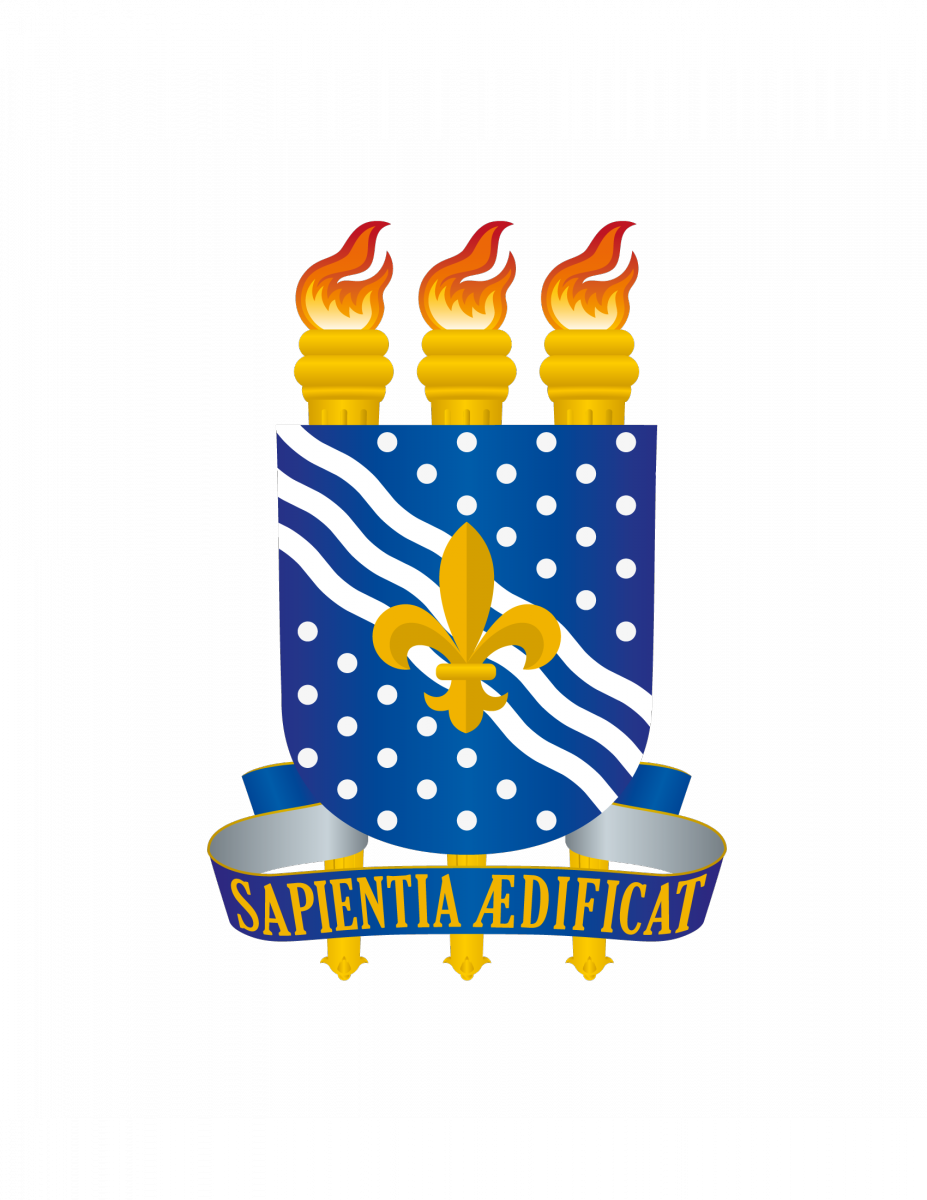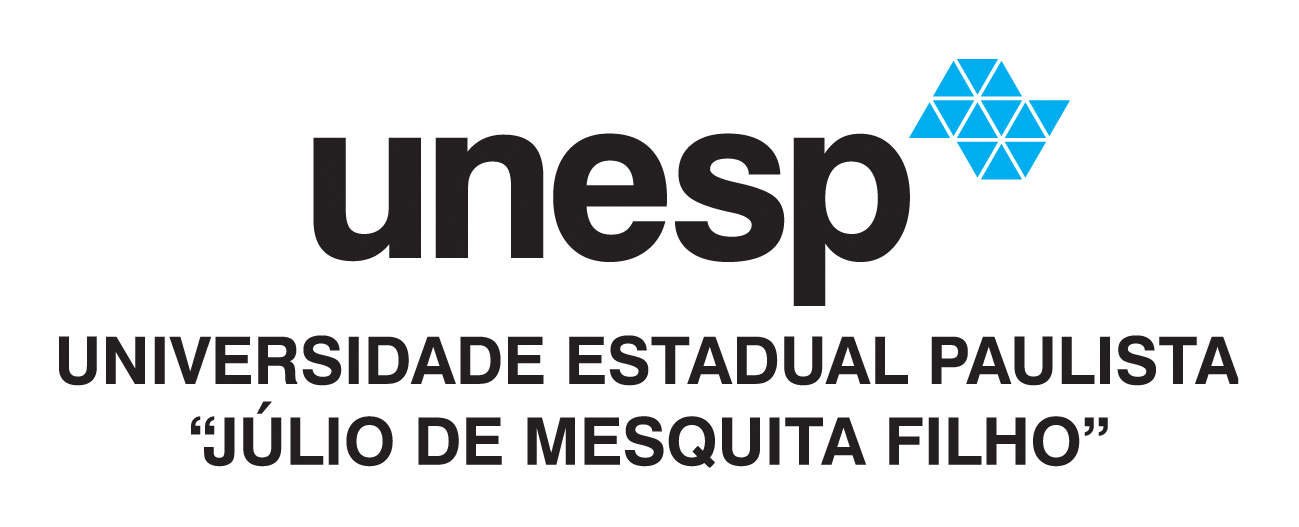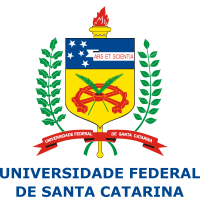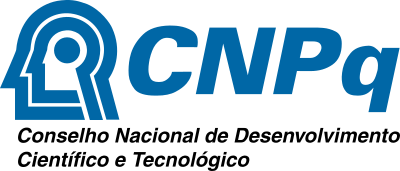Information, Data and Technology
Guilherme Ataíde Dias
Federal University of Paraíba (UFPB) | guilhermeataide@ccsa.ufpb.br | https://orcid.org/0000-0001-6576-0017 | https://lattes.cnpq.br/9553707435669429
Undergraduate in Computer Science from the Federal University of Paraíba UFPB Campus II (1990), Bachelor in Law by the University Center of João Pessoa UNIPE (2010), Master in Organization & Management by Central Connecticut State University? CCSU (1995), PhD in Information Science (Communication Sciences) at the University of São Paulo? USP (2003) and Post-Doctor by UNESP (2011). He is currently Associate Professor III at the Federal University of Paraíba, where he holds a degree in Information Science. He is involved with Post-Graduation through the Post-Graduate Program in Information Science and Postgraduate Program in Administration, both of UFPB. Has research interest in the following themes: Knowledge Representation; Information Architecture; Information security; Information and Communication Technologies; Health Information; Social networks; Free software; Law, Ethics and Intellectual Property in Cyberspace; Scientific Data Management; Legal Information; He is currently Research Productivity Scholar (PQ) at CNPq.
Moisés Lima Dutra
Federal University of Santa Catarina (UFSC) | moises.dutra@ufsc.br | https://orcid.org/0000-0003-1000-5553 | https://lattes.cnpq.br/1973469817655034
Professor, Federal University of Santa Catarina, Department of Information Science. PhD in Computing from the University of Lyon 1, France (2009). Master in Electrical Engineering, subarea Automação e Sistemas (2005) and Bachelor in Computing (1998) from the Federal University of Santa Catarina. His current lines of research are related to Applied Artificial Intelligence (Machine Learning, Deep Learning, Semantic Web, Linked Data) and Data Science (Big Data, IoT). It is linked to the research group ITI-RG (Intelligence, Technology and Information - Research Group).
Fábio Mosso Moreira
São Paulo State University (UNESP) | fabio.moreira@unesp.br | https://orcid.org/0000-0002-9582-4218 | https://lattes.cnpq.br/1614493890723021
Undergraduate degree in Business Administration from the Faculty of Sciences and Engineering (UNESP / Tupã). Master degree in Information Science - (UNESP / Marília). PhD student in the Graduate Program in Information Science (UNESP / Marília). Member of the Research Group - GPNTI (UNESP / Marília) and GPTAD (UNESP / Tupã). Collaborator of the Project Digital Skills for Family Farming (CoDAF). Content editor of the Electronic Journal Digital Skills for Family Farming (RECoDAF). Professional Technical Skill in Informatics from ETEC Massuyuki Kawano - Centro Paula Souza de Tupã. Professional experience in the ERP Information Systems for Logistics Operations. Works with research in Information Science, studying the use of digital resources for access to government data of Public Policies in the context of the small farmer.
Fernando de Assis Rodrigues
Federal University of Pará (UFPA) | fernando@rodrigues.pro.br | https://orcid.org/0000-0001-9634-1202 | https://lattes.cnpq.br/5556499513805582
Professor at Federal University of Pará. Ph.D. and M.S. in Information Science, Post-bachelor in Internet Systems and Bachelor of Science in Information Systems. Most of his experience is based on works developed as a Full Stack Developer and Database administrator, especially with Python, Java and PHP programming languages, as well as MySQL, MariaDB, SQLite3 and PostgreSQL databases. Also, he lectured classes related to the context of Computer Science to undergraduate and graduate students at UNESP. Currently, He workd as a postdoc researcher at UNESP labs, working in data studies.
Ricardo César Gonçalves Sant'Ana
São Paulo State University (UNESP) | ricardo.santana@unesp.br | https://orcid.org/0000-0003-1387-4519 | https://lattes.cnpq.br/1022660730972320
Associate Professor at the Paulista State University - UNESP, Faculty of Sciences and Engineering - FCE, Campus de Tupã, on an exclusive dedication, where he is Chairman of the Monitoring and Evaluation Committee of the Graduate Courses - CAACG, Local Coordinator of the Center for Studies and Pedagogical Practices - CENEPP and Local Ombudsman. Professor of the Post-Graduate Program in Information Science of the Paulista State University, Marília Campus. Graduated in Mathematics and Pedagogy, Master in Information Science (2002), Doctorate in Information Science (2008) and Freelance in Management Information Systems by UNESP (2017). He has specialized in Object Orientation (1996) and Management of Information Systems (1998). Ad hoc advisor of periodicals and development agencies. Member of the Research Group - New Technologies in Information GPNTI-UNESP. Has experience in the area of ??Computer Science, currently conducts research focused on: information science and information technology, investigating issues related to the Data Life Cycle, Transparency and Information Flow in Productive Chains. He worked as a professor at Faccat Faculdade de Ciências Contábeis e Administração de Tupã, where he coordinated a course of Administration with Qualification in Systems Analysis for ten years and the course of Licenciatura in Computing. He worked in the private sector as a consultant, integrator and researcher of new information technologies from 1988 to 2004.
Organizators
Guilherme Ataíde Dias
Federal University of Paraíba (UFPB) | guilhermeataide@ccsa.ufpb.br | https://orcid.org/0000-0001-6576-0017 | https://lattes.cnpq.br/9553707435669429
Undergraduate in Computer Science from the Federal University of Paraíba UFPB Campus II (1990), Bachelor in Law by the University Center of João Pessoa UNIPE (2010), Master in Organization & Management by Central Connecticut State University? CCSU (1995), PhD in Information Science (Communication Sciences) at the University of São Paulo? USP (2003) and Post-Doctor by UNESP (2011). He is currently Associate Professor III at the Federal University of Paraíba, where he holds a degree in Information Science. He is involved with Post-Graduation through the Post-Graduate Program in Information Science and Postgraduate Program in Administration, both of UFPB. Has research interest in the following themes: Knowledge Representation; Information Architecture; Information security; Information and Communication Technologies; Health Information; Social networks; Free software; Law, Ethics and Intellectual Property in Cyberspace; Scientific Data Management; Legal Information; He is currently Research Productivity Scholar (PQ) at CNPq.
Moisés Lima Dutra
Federal University of Santa Catarina (UFSC) | moises.dutra@ufsc.br | https://orcid.org/0000-0003-1000-5553 | https://lattes.cnpq.br/1973469817655034
Professor, Federal University of Santa Catarina, Department of Information Science. PhD in Computing from the University of Lyon 1, France (2009). Master in Electrical Engineering, subarea Automação e Sistemas (2005) and Bachelor in Computing (1998) from the Federal University of Santa Catarina. His current lines of research are related to Applied Artificial Intelligence (Machine Learning, Deep Learning, Semantic Web, Linked Data) and Data Science (Big Data, IoT). It is linked to the research group ITI-RG (Intelligence, Technology and Information - Research Group).
Fábio Mosso Moreira
São Paulo State University (UNESP) | fabio.moreira@unesp.br | https://orcid.org/0000-0002-9582-4218 | https://lattes.cnpq.br/1614493890723021
Undergraduate degree in Business Administration from the Faculty of Sciences and Engineering (UNESP / Tupã). Master degree in Information Science - (UNESP / Marília). PhD student in the Graduate Program in Information Science (UNESP / Marília). Member of the Research Group - GPNTI (UNESP / Marília) and GPTAD (UNESP / Tupã). Collaborator of the Project Digital Skills for Family Farming (CoDAF). Content editor of the Electronic Journal Digital Skills for Family Farming (RECoDAF). Professional Technical Skill in Informatics from ETEC Massuyuki Kawano - Centro Paula Souza de Tupã. Professional experience in the ERP Information Systems for Logistics Operations. Works with research in Information Science, studying the use of digital resources for access to government data of Public Policies in the context of the small farmer.
Fernando de Assis Rodrigues
Federal University of Pará (UFPA) | fernando@rodrigues.pro.br | https://orcid.org/0000-0001-9634-1202 | https://lattes.cnpq.br/5556499513805582
Professor at Federal University of Pará. Ph.D. and M.S. in Information Science, Post-bachelor in Internet Systems and Bachelor of Science in Information Systems. Most of his experience is based on works developed as a Full Stack Developer and Database administrator, especially with Python, Java and PHP programming languages, as well as MySQL, MariaDB, SQLite3 and PostgreSQL databases. Also, he lectured classes related to the context of Computer Science to undergraduate and graduate students at UNESP. Currently, He workd as a postdoc researcher at UNESP labs, working in data studies.
Ricardo César Gonçalves Sant'Ana
São Paulo State University (UNESP) | ricardo.santana@unesp.br | https://orcid.org/0000-0003-1387-4519 | https://lattes.cnpq.br/1022660730972320
Associate Professor at the Paulista State University - UNESP, Faculty of Sciences and Engineering - FCE, Campus de Tupã, on an exclusive dedication, where he is Chairman of the Monitoring and Evaluation Committee of the Graduate Courses - CAACG, Local Coordinator of the Center for Studies and Pedagogical Practices - CENEPP and Local Ombudsman. Professor of the Post-Graduate Program in Information Science of the Paulista State University, Marília Campus. Graduated in Mathematics and Pedagogy, Master in Information Science (2002), Doctorate in Information Science (2008) and Freelance in Management Information Systems by UNESP (2017). He has specialized in Object Orientation (1996) and Management of Information Systems (1998). Ad hoc advisor of periodicals and development agencies. Member of the Research Group - New Technologies in Information GPNTI-UNESP. Has experience in the area of ??Computer Science, currently conducts research focused on: information science and information technology, investigating issues related to the Data Life Cycle, Transparency and Information Flow in Productive Chains. He worked as a professor at Faccat Faculdade de Ciências Contábeis e Administração de Tupã, where he coordinated a course of Administration with Qualification in Systems Analysis for ten years and the course of Licenciatura in Computing. He worked in the private sector as a consultant, integrator and researcher of new information technologies from 1988 to 2004.
The Information Science and education in management and curation of research data
Pages: 200 - 212
Authors
Gracielle Mendonça Rodrigues Gomes
Federal University of Minas Gerais (UFMG) | graciellemendonca@yahoo.com.br | https://orcid.org/0000-0003-3614-771X | https://lattes.cnpq.br/5638259728289538
PhD student of the Graduate Program in Management & Knowledge Organization - School of Information Science - Federal University of Minas Gerais (2015-). Master in Information Science by the Post-Graduate Program in Information Science - School of Information Science - Federal University of Minas Gerais (2012-2014). Specialist in Archives and Document Management - Continued Education Institute of PUC Minas (2007-2008). Bachelor in Librarianship - School of Information Science - Federal University of Minas Gerais (2001-2004). Librarian of the Support Sector to the Portal of Periodicals of CAPES - Library System - Federal University of Minas Gerais (2017-present). Co-coordinator and librarian of the Car-Library Extension Program - School of Information Science - Federal University of Minas Gerais (2008-2017). Reporter for The Electronic Library (2016-present). Member of the Information and Information Systems research group: users and uses studies (2011-present) and Research Center in Semiotic Engineering and Interaction (PENSI) (2013-present). Areas of interest: e-Science, information retrieval systems, human-computer interaction, digital libraries, knowledge organization, information uses and user studies.
Marcello Mundim Rodrigues
Federal University of Minas Gerais (UFMG) | marcellomundim@ufu.br | https://orcid.org/0000-0001-7945-6673 | https://lattes.cnpq.br/7319023790210705
Master student at the Graduate Program in Management and Knowledge Organization of the School of Information Science of the Federal University of Minas Gerais (UFMG), 2018-2020. Graduate in Librarianship by the Federal University of Minas Gerais (UFMG) in 2012. Post-Graduate in Librarianship with a focus on Knowledge Management at Signorelli International Faculty in 2014. He is currently a Librarian in the Cataloging, Classification and Indexing Sector of the Federal University of Uberlândia (UFU); member of the Working Group (GT) Printed Books (2014-), and secretary of the Brazilian Committee for the Development of Collections (CBDC / CBBU-FEBAB). Has experience as Cataloging Librarian, Classification and Indexing, Selection and Acquisition, Reference and Information Unit Manager. He also worked as an English Language Teacher (2008-13) in language schools in the city of Belo Horizonte. He has done two exchanges in the United States and has interned in companies: YMCA, located in Davis / Oklahoma; and Walt Disney World Resorts, located in Orlando / Florida. Natural of Brasília. Year of birth: 1985.
Video Transcription
Boa tarde, bom meu nome é Marcello, eu sou mestrando em gestão e organização do conhecimento na Universidade Federal de Minas Gerais, eu fiz este trabalho com uma colega de doutorado que é a Gracielle Mendonça Rodrigues Gomes, ela é bibliotecária na UFMG e eu sou bibliotecário em Uberlândia. A gente trouxe este trabalho, ingressando na pesquisa em gestão de dados e a gente decidiu fazer essa abordagem dentro da educação.
Antes de começar queria agradecer a oportunidade pelo trabalho apresentado ter sido selecionado, é um prazer vir até aqui e estar participando do evento. Então o contexto que a gente fala sobre a ciência da informação e educação de profissionais de informação e dados, também falamos de competência em dados que é transmitido pelo pessoal da informação, que domina essa expertise de gestão e dados, conhece esses meios e consegue auxiliar esses pesquisadores, alunos de graduação, pós-graduação, que trabalham com pesquisa para gerirem seus data-sets, conjuntos de dados.
Os problemas enfrentados pelas instituições na gestão e curadoria de dados de pesquisa oferecem uma oportunidade para ciência da informação e os profissionais da ciência da informação elaborarem teorias, valores e políticas, além de definir os papéis e competências no apoio a pesquisa e a importância de que esses profissionais percebam as oportunidades que surgem nessas percepções dos dados de pesquisa.
O desenvolvimento das habilidades e conhecimentos relacionados à área de dados pode ocorrer em dois níveis (CALZADA PRADO; MARZAL, 2013; KOLTAY, 2015). O primeiro nível é o nível que vem obviamente na fase inicial que é a formação dos profissionais, então primeiro é necessário que a gente tenha a formação para que depois a gente faça essa capacitação dos nosso usuários de serviços no caso bibliotecas universitárias. Se a gente está falando de bibliotecários e serviços que são voltados para pesquisa científica, então hoje o nosso ambiente é a biblioteca universitária na universidade.
Então na primeira etapa, através da formação dos profissionais da informação como especialistas capazes de realizar a gestão e a curadoria de dados de pesquisa mediante educação formal em instituições de ensino e eventos da área (CALZADA PRADO; MARZAL, 2013; KOLTAY, 2015).
A segunda etapa ela vem através do treinamento de pesquisadores e estudantes, depois que você tem profissionais formados nessa área, nós temos esses profissionais trabalhando para formação e desenvolvimento de competências desses usuários, os pesquisadores, os alunos e instituições. A gente tem a informação como competência da informação,, que é uma tendência agora de estudos da literatura estrangeira, e nossa intenção de pesquisa vem buscar esse conhecimento de como anda a literatura nacional.
Aqui a gente entra um pouco mais na introdução em que os profissionais da informação são capazes de ensinar essas competências a partir da informação que eles possam receber na sua formação profissional, e os professores também possuem papel importante nesta formação desses profissionais bibliotecários formados para dados.
O objetivo geral dessa pesquisa é identificar se existem na literatura nacional da CI estudos que contemplem a formação dos profissionais da informação em gestão e curadoria de dados de pesquisa, e estudos que tratem sobre o desenvolvimento da competência em dados para pesquisadores e estudantes de graduação e pós-graduação. Os objetivos específicos são: a) identificar trabalhos pertinentes ou relacionados às II Workshop de Informação, Dados e Tecnologia, UFPB, Brasil temáticas; b) avaliar como as temáticas estão sendo apresentadas nos artigos; c) caracterizar o estado atual da literatura da CI sobre as temáticas; d) promover a discussão sobre os temas na CI brasileira.
Na primeira etapa a gente fez a coleta de dados, a gente procurou trabalho nas principais bases de dados científicas, BRAPCI, SCIELO, LISA, LISTA, Scopus, Web of Science e Google Acadêmico. A gente buscou utilizando essas palavras chave, a gente tentou fazer uma busca mais ampla de trabalhos, a gente fez a leitura do título, resumo, palavra chave depois a gente passou para o texto completo para identificar melhor se tratavam deste assunto ou se aproximavam.
Então a gente identificou sete artigos, um livro, uma tese e uma monografia, por critério de exclusão a gente preferiu trabalhar somente com os artigos. Nos nossos trabalhos a gente apresenta a resenha dos sete artigos que nós achamos, então a gente fez uma periodização da análise de conteúdo, a gente criou um quadro e também fizemos essas resenhas dos trabalhos para passarmos uma ideia do conteúdo desses trabalhos.
Aqui são os resultados, onde temos os sete artigos em ordem cronológica, 2012 -2018, e a gente apresentou os temas, os objetivos dos trabalhos, se apresentou menção de dados de pesquisa, se apresentou competência em dados de pesquisa e se apresentou formação do PI em Gestão e Curadoria de Dados de Pesquisa. Então a gente com esse quadro identifica que são trabalhos na predominância da ciência da informação, eles têm temática desde preservação, ciência de dados, bibliometria, curadoria. Nos objetivos gerais a gente identificou que nenhum desses trabalhos buscavam falar sobre a formação dos profissionais e nem da competência destinado aos pesquisadores e alunos de graduação e pós-graduação, a maioria mencionaram os dados de pesquisa, porém nenhum deles estava destinado para falar sobre a temática que nós buscamos identificar. Então temos o quadro detalhado segundo o nosso objetivo.
As considerações finais Observam-se, atualmente, dificuldades para encontrar artigos na CI no Brasil quanto à formação do profissional da informação em gestão e curadoria de dados de pesquisa e sobre o desenvolvimento da competência de dados em estudantes e pesquisadores pelos serviços de informação científica. Então a gente não encontrou artigos que estavam destinados a isso.
Os artigos selecionados para análise tratam de modo incipiente sobre esses assuntos, pois não eram os seus objetivos principais. Apenas um artigo discute brevemente sobre algumas atividades relacionadas ao desenvolvimento de competência em dados de pesquisa e quatro artigos indicam sobre necessidade de formação do profissional da informação para atividades relacionadas ao contexto de dados. Considera-se a necessidade de realizar discussões e pesquisas sobre essas temáticas na literatura nacional da área de modo a tentar estimular a mudança dos currículos atuais das Escolas de Ciência da Informação e dos serviços prestados aos estudantes e pesquisadores no Brasil, pois torna-se imprescindível para a CI acompanhar as transformações na ciência e evoluir conjuntamente com as práticas de produção e comunicação científica.
Então a gente alcançou este objetivo e a gente percebe que tem possibilidades de pesquisas futuras , como a gente buscou trabalhos nacionais, poderíamos buscar talvez se existem pesquisadores escrevendo em inglês, a gente acha que não mas há essa possibilidade, então existem possibilidades de estudos futuros a partir do que a gente encontrou. É isso, nossas referências.
Obrigado.




